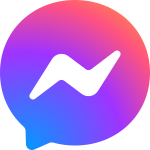Facebook[3] Messenger, often simply referred to as Messenger, is an instant messaging[1] application hailing from the United States, developed by Meta Platforms. Ever since its first introduction to the public on August 9, 2011, it has been consistently updated to function on a variety of operating systems such as Android, iOS, Windows, and macOS. As a platform for instant messaging, it has gained widespread usage due to its extensive array of user-friendly features. It offers smooth communication services and a plethora of functionalities, harmoniously integrated with the Facebook platform[2]. As a crucial part of the Meta Platforms ecosystem, Messenger is perpetually advancing with frequent updates and the introduction of innovative features. Its evolution has been punctuated by significant legal proceedings, including Young v. Facebook, Inc., Fraley v. Facebook, Inc., and Force v. Facebook, Inc.
Messenger, also known as Facebook Messenger, is an American proprietary instant messaging app and platform developed by Meta Platforms. Originally developed as Facebook Chat in 2008, the company revamped its messaging service in 2010, released standalone iOS and Android apps in 2011, and released standalone Facebook Portal hardware for Messenger calling in 2018. In April 2015, Facebook launched a dedicated website interface, Messenger.com, and separated the messaging functionality from the main Facebook app, allowing users to use the web interface or download one of the standalone apps. In April 2020, Facebook released a Messenger desktop app for Windows and macOS.
 | |||||||||
| Developer(s) | Meta Platforms | ||||||||
|---|---|---|---|---|---|---|---|---|---|
| Initial release | August 9, 2011 April 2020 | ||||||||
| Stable release(s) [±] | |||||||||
| |||||||||
| Preview release(s) [±] | |||||||||
| |||||||||
| Operating system | Web, Android, iOS, Windows 10, Windows 11, Windows Phone, macOS, WatchOS, Wear OS | ||||||||
| Size | 53.33 MB (Android) 124.1 MB (iOS) 169.4 MB (Windows 10 and Windows 11) 91.3 MB (macOS) | ||||||||
| Available in | 111 languages | ||||||||
List of languages Afrikaans, Albanian, Amharic, Arabic, Armenian, Assamese, Azerbaijani, Basque, Belarusian, Bengali, Bosnian, Breton, Bulgarian, Burmese, Catalan, Cebuano, Corsican, Croatian, Czech, Danish, Dutch, Dutch (België), English (UK), English (US), English (upside down), Esperanto, Estonian, Faroese, Filipino, Finnish, French (Canada), French (France), Frisian, Fula, Galician, Georgian, German, Greek, Guarani, Gujarati, Haitian Creole, Hausa, Hebrew, Hindi, Hungarian, Icelandic, Indonesian, Irish, Italian, Japanese, Japanese (Kansai), Javanese, Kannada, Kazakh, Khmer, Kinyarwanda, Korean, Kurdish (Kurmanji), Kyrgyz, Lao, Latvian, Lithuanian, Macedonian, Malagasy, Malay, Malayalam, Maltese, Marathi, Mongolian, Nepali, Norwegian (bokmal), Norwegian (nynorsk), Oriya, Pashto, Persian, Polish, Portuguese (Brazil), Portuguese (Portugal), Punjabi, Romanian, Russian, Sardinian, Serbian, Shona, Silesian, Simplified Chinese (China), Sinhala, Slovak, Slovenian, Somali, Sorani Kurdish, Spanish, Spanish (Spain), Swahili, Swedish, Syriac, Tajik, Tamazight, Tamil, Tatar, Telugu, Thai, Traditional Chinese (Hong Kong), Traditional Chinese (Taiwan), Turkish, Ukrainian, Urdu, Uzbek, Vietnamese, Welsh and Zaza | |||||||||
| Type | Instant messaging, VoIP | ||||||||
| License | Freeware, proprietary | ||||||||
| Website | messenger.com facebook.com/messages | ||||||||
Messenger is used to send messages and exchange photos, videos, stickers, audio, and files, and also react to other users' messages and interact with bots. The service also supports voice and video calling. The standalone apps support using multiple accounts, conversations with optional end-to-end encryption, and playing games.
